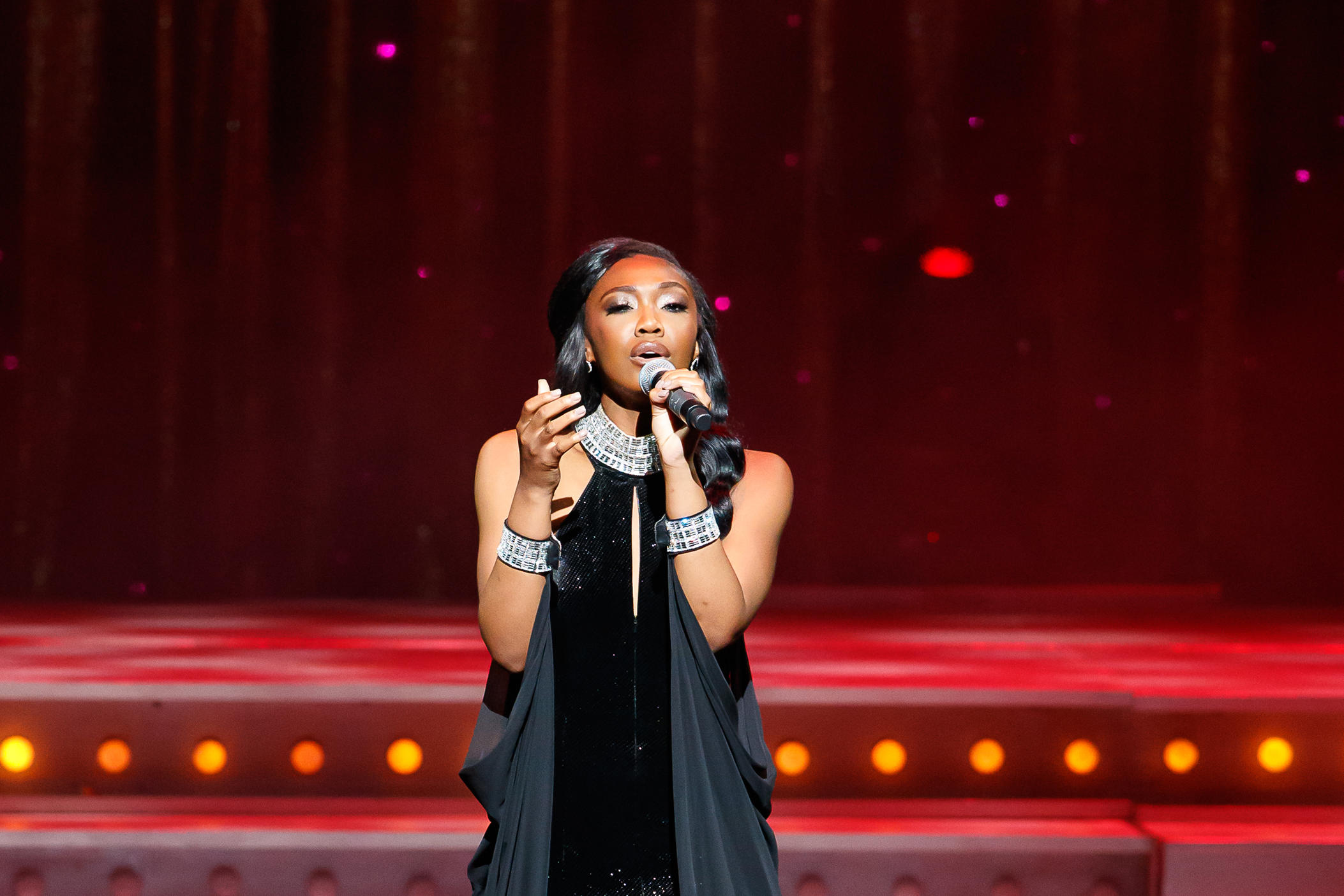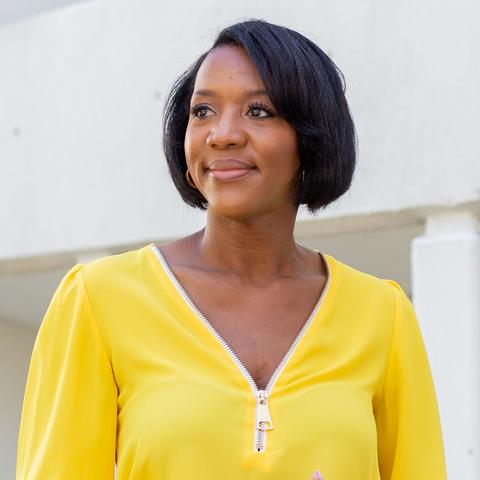Section Branding
Header Content
From Miss Georgia to Miss America, beauty comes in many shades. Two winners want to pass the word on
Primary Content
LISTEN: Miss Georgia 2022, Kelsey Hollis of Warner Robins, Ga., is getting ready to represent her state at December's Miss America pageant. GPB's Leah Fleming talks with her and Danica Tisdale, winner of the 2004 Miss Georgia contest.
——
The first people to ever appear on stage at a Miss America pageant were Black dancers in 1923 who masqueraded as enslaved Africans for a musical number. It was not until 1970 that a Black woman, Iowa's Cheryl Brown, won a state title and made it to the pageant as a contestant.
In 1984, history was made as Vanessa Williams became the first Black woman to be crowned Miss America. She would step down with just two months left in her yearlong reign after a scandal broke involving nude pictures of herself.
In 2004, Danica Tisdale made history as the first Black winner of Miss Georgia. In 2008, Chastity Hardman became the second Black woman to become Miss Georgia, becoming the first runner-up at the Miss America pageant.
And now there is a new Black queen: In June, Kelsey Hollis became the latest Miss Georgia, just the third Black woman in the pageant's nearly 80-year history to do so. The Warner Robins native is now preparing to go to Connecticut, where she will compete for Miss America in December.
GPB Morning Edition host Leah Fleming recently spoke with her about her win and the celebration of diversity in beauty pageants. Hollis founded a pageant in Middle Georgia called "Miss Queen of Summer." It honors girls in middle and high school with diagnosed disabilities.
Kelsey Hollis: My older brother was diagnosed with autism at a very young age. So as I was growing up I didn't realize until I got older the need for other people to also be educated on different disabilities — which I also don't even really like to say the word "disabilities." I call them differently abled because they are still capable of so much and have so much to offer to the world. When I first started in pageantry, that was something that gave me confidence and definitely put me in a position to kind of be able to capitalize on the gifts that God has given me. And so I felt like it was only right to be able to give them the same opportunity.
Leah Fleming: What I love about that is that it gives them a chance to feel beautiful and smart.
Kelsey Hollis: Yes. And I think the most touching part of that experience has also been the parents' reactions. They naturally find beauty in [their children]. And then I think to be able to see other people learning to appreciate them as well definitely makes a big impact on their families.
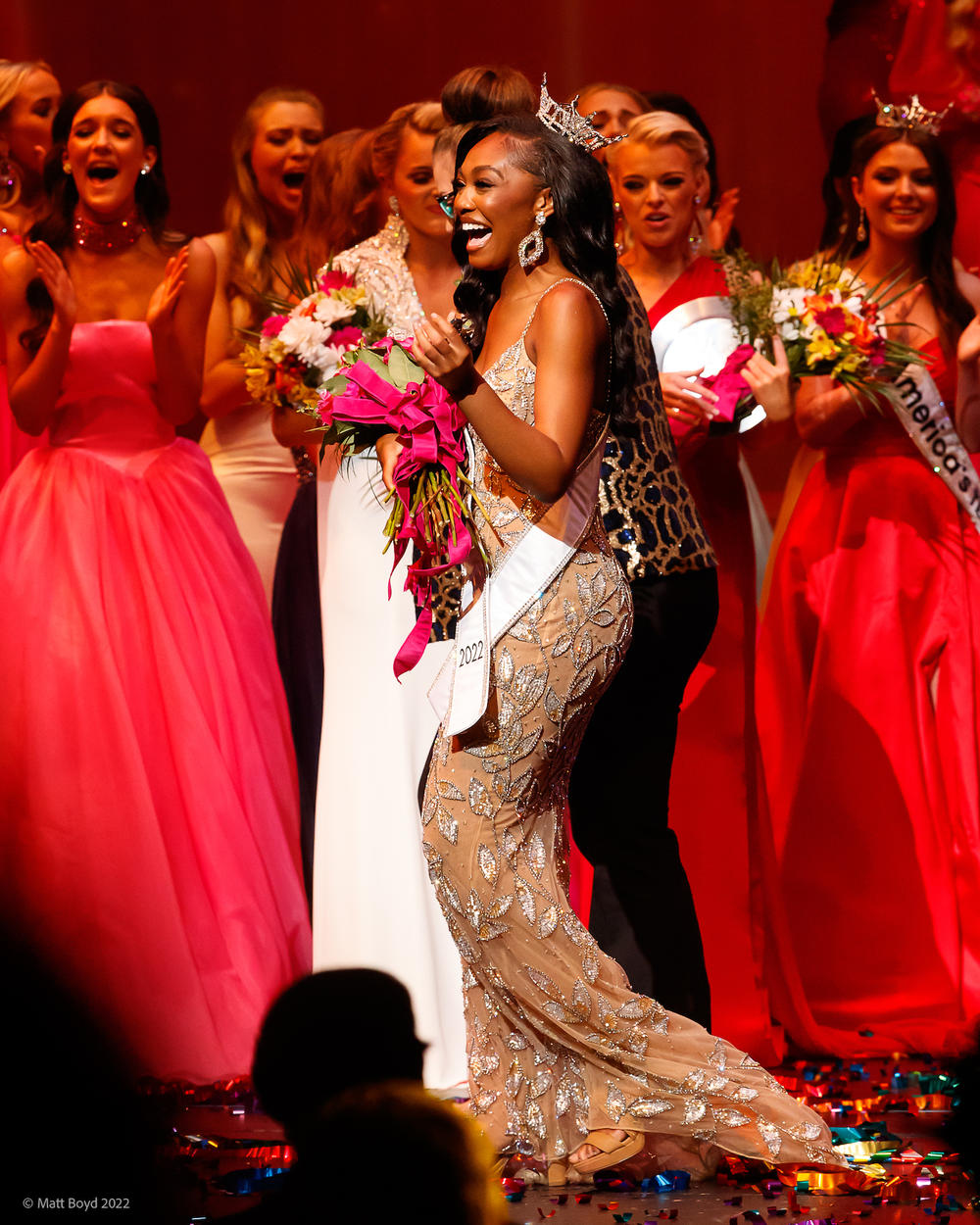
Leah Fleming: There are two famous pop stars recently that put out albums that contain ableist slurs in their songs. I know you've heard about this: Beyonce and Lizzo. They use the term “spaz” and it's slang for "losing control." But it's no longer [politically correct] due to the word's origins of spastic, which is a form of muscular weakness. Both artists agreed to remove the slur from their music. But I'm wondering what your thoughts are on this. Is it a good move? Does it help?
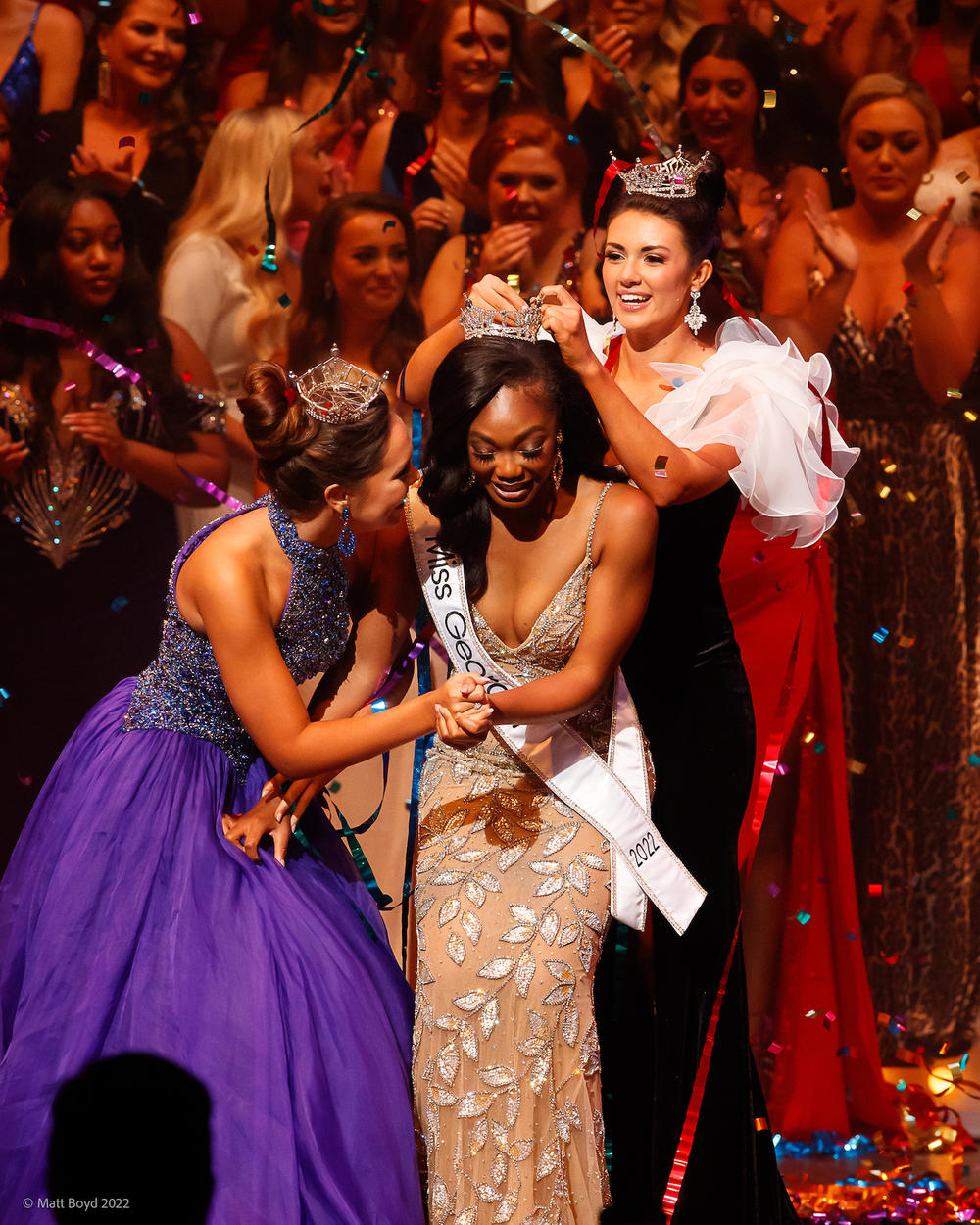
Kelsey Hollis: I mean, I definitely think that they should remove the words. It's a little unfortunate that it kind of got to the point where they had to be asked to do that or receive negative energy back from other people to be prompted to do so. But I think that all just goes back to awareness and people understanding how severe those different disorders are. So hopefully with Beyonce, especially, having the influence that she has and unfortunately coming to this point in her career with having to remove the word — if anything, that would give more awareness to those who aren't really educated on what the word's origin actually comes from.
Leah Fleming: So speaking of Black queens, you are indeed a true Black queen, having won Miss Georgia and now getting ready to go compete in Miss America. I'm wondering if you are aware of what this moment means for so many Black women.
Kelsey Hollis: I think representation is everything right now. For us to see people who look like us in these positions definitely gives confidence to a lot of girls that may not ever have envisioned themselves there or understanding that it's attainable. But we do deserve a seat at the table. And I mean, even the fact that we have so much influence in the world, the demographic within the state of Georgia, to have only three out of 77 women be Black — as Miss Georgias — I think, just kind of speaks volumes. Hopefully I'll be able to just continue to inspire girls hoping to compete — that do look like me — that this is something that we can do and something that we deserve to be successful at.
Leah Fleming: Kelsey Hollis is Miss Georgia 2022. She will compete at the Miss America pageant in December.
Miss America is a pageant that has a long history of excluding women of color. In the 1930s, it was formalized in the notorious Rule No. 7 of the Miss America rulebook instituted under the directorship of Lenora Slaughter. Rule No. 7 stated that contestants must be of good health and of the white race. As late as 1940, all contestants were required to list on their formal biological data sheet, how far back they could trace their ancestry. That history was on the mind of Atlanta native Danica Tisdale when she competed for Miss America in 2004. Tisdale became the very first Black woman to win the Miss Georgia State Pageant. She was a 24-year-old Ph.D. candidate at Emory University after attending Spelman College and Temple University.
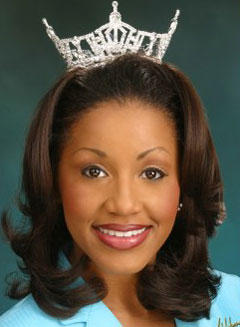
Danica Tisdale: When I began to compete for the title of Miss Georgia, I knew there had never been a Black woman to win. But that also didn't discourage me because I knew I could be the first. And so I went into the pageant with, you know, full confidence that I could perform at my best and highest level and that I would be given a fair shake. And I did indeed win.
Leah Fleming: When you were in school, you did a dissertation. It was titled "The Pageant Politic: Race and Representation in American Beauty Contests and Culture." What did you find?
Danica Tisdale: I really wanted to sort of look at the ways in which other marginalized communities use the pageant model to present new ideals of womanhood and femininity and beauty. My last chapter looked at the comedian Mo'Nique. She had this pageant that was titled "Mo'Nique's Fat Chance," and it was on TV at the time. And I was thinking a lot about how women who embody fatness and all of its beauty and fullness were thinking about what it meant to be beautiful in a society that had deemed them anything but.
Leah Fleming: There's been a lot said about whether beauty pageants should be a thing of the past. Well, while that debate continues, so do the pageants. And queens like Tisdale and Hollis say it is important to open the competition up to women and girls of all abilities and races and sizes.
